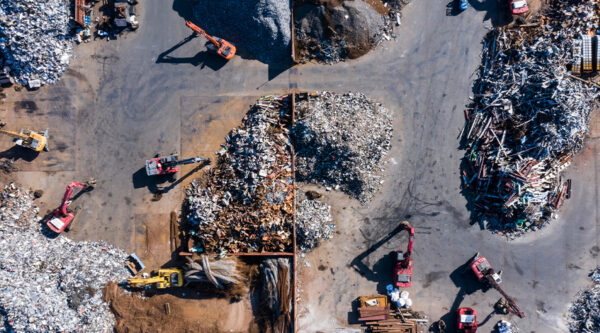

In today’s digital world, we’re all aware of the importance of keeping personal data safe – but what about the physical records we no longer need? Many businesses still rely on paper documents, and if these aren’t disposed of securely, sensitive data could fall into the wrong hands. Whether you’re running a corporate office or a waste management company, it’s crucial to securely destroy these records to comply with GDPR and protect your clients’ data.
Why secure data disposal is essential
Many organisations still rely on paper records that must be securely disposed of to avoid data breaches. Confidential waste disposal is an essential component of GDPR compliance, ensuring that internal, employee, and customer data remains protected. Improper disposal of records can lead to identity theft, fraud, and reputational harm, making secure data destruction a critical business function.
The role of waste management companies in GDPR compliance
As a waste management company handling the disposal of personal data for other businesses, you may be classified as a ‘data processor’ under GDPR. This designation comes with additional responsibilities to protect the data and follow strict security measures. Ensuring compliance means understanding legal obligations and maintaining robust security practices throughout the disposal process.
Terms and Conditions (“T&Cs”)
Your T&Cs should clearly outline the legal basis for processing personal data, such as consent, contractual necessity, or legitimate interests. They should also specify data retention periods and security measures like encryption or secure disposal. If customer data is shared with third parties, including IT service providers or subcontractors, these arrangements should be disclosed along with any cross-border data transfers and safeguards in place. Additionally, customers must be informed of their GDPR rights, including their ability to access, rectify, erase, or restrict the processing of their data.
Data Processing Agreement (“DPA”)
A DPA is legally required under GDPR when acting as a data processor. If your company processes personal data on behalf of clients, a DPA should be in place, covering:
- Scope of data processing – what data will be processed, for what purpose, and for how long
- Security measures – steps taken to protect the data.
- Use of sub-processors – if third parties will handle data
- Data subject rights – how customers can access, rectify, or request deletion of their data
- Breach notification procedures – how the company will notify clients in case of a data breach.
Internal policies and staff training
Clear internal policies should guide employees on best practices for handling and disposing of sensitive information. Staff training is particularly important, ensuring that everyone involved understands the legal and operational implications of data protection in waste management.
Secure handling of confidential waste should be ingrained in daily operations, reducing the risk of human error and ensuring compliance at all levels.
What happens if you don’t comply?
Failing to comply with GDPR can have serious consequences for waste management companies, particularly those acting as data processors. Potential repercussions include:
- Legal liability – data processors can be held directly accountable for breaches, leading to legal claims from affected individuals
- Regulatory fines – non-compliance can result in substantial fines from data protection authorities
- Reputational damage – a security breach could undermine client trust and damage business relationships
- Financial loss – companies may face lawsuits or compensation claims from those affected by data leaks.
Final thoughts: protecting what you throw away
In the waste management industry, your goal is to destroy things. But when it comes to personal data, it’s not just about getting rid of it, it’s about ensuring it’s securely destroyed. Treat both physical and digital data with the same level of care, and take the time to create formal policies for data disposal.
Contact us
"*" indicates required fields










